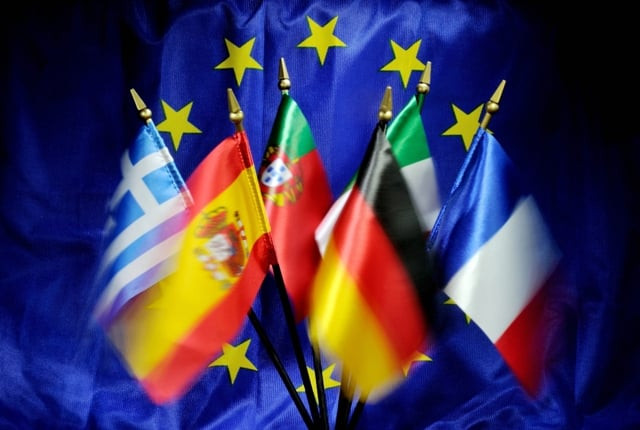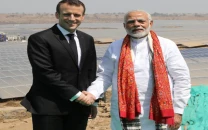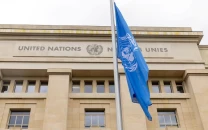Muslim minorities under-represented in European parliaments
11-year study shows political representation of Muslim minorities vary significantly across 26 European countries

Muslim minorities living in Europe are not represented proportionately in politics, Turkish experts have said in a study.
A research article by Sener Akturk, associate professor for international relations at the Koc University, and Ph.D candidate Yury Katliarou was published in the June issue of Perspectives on Politics, a quarterly peer-reviewed journal.
Based on an 11-year study between 2007 and 2018, the authors concluded that the representation of Muslim minority groups in politics varies across 26 European countries.
The article, Institutionalization of Ethnocultural Diversity and the Representation of European Muslims, explores Muslims’ rate of representation in the lower chambers of the national parliaments of European countries.
The countries with the highest levels of representation of the Muslim population are Belgium, Bulgaria, the Netherlands, Romania, and Serbia, and these are followed by Croatia, Finland, Montenegro, and Norway, according to the study.
It also shows that France, Switzerland, Spain, Italy, and Germany are the countries with the lowest rate of representation of Muslim minorities in proportion to their population.
Muslim politicians stand out in Belgium
In Belgium, the country with strongly institutionalized ethnocultural diversity, the constantly high rate of representation of Muslims draws attention.
Openly displaying their Islamic identities, Muslim candidates can run for parliament both at the federal and regional level and win elections, while in France, where the institutionalization of ethnocultural diversity is the weakest, only the most secular fragments of the Muslim minority can successfully seek political representation.
France, the country with the largest Muslim minority in proportion to the national population, draws attention as the country with the least political representation of Muslims.
There were eight Muslim-origin members of parliament in French Assemble National in 2017, four in 2012, and none in 2007.
In Bulgaria, in which high levels of descriptive representation of local Muslims coincide with low levels of institutionalization of ethnocultural diversity, the share of the Muslim minority in the political field decreased drastically due to various factors, including the effect of the disproportionate demographic change in the country.
Akturk, one of the co-writers of the article, told Anadolu Agency that the reasons for Belgium to be the country with the highest level of institutionalization of ethnocultural diversity are more than one official languages, the federal structures led by Walloons and Flemings, which are the ethnocultural groups regarded in their constitution as the factors that co-constitute Belgium.
“Muslims, the much newer minority in Belgium compared to Walloons and Flemings, can find the possibility of representation in proportion to their population, and sometimes even higher levels,” Akturk said.
“We claim that is, indirectly, a positive side effect of the institutionalization of ethnocultural diversity rather than a coincidence,” he added.
Noting that France is exemplary in many aspects, Akturk said: “Although France has the largest Muslim minority both proportionally and numerically in Western Europe, it is a paradigmatic example where Muslims are under-represented in politics, and where anti-Islamic policies are observed very sharply in every aspect of life, from politics to education, from the job market to the media.”
He stated that approximately 42 to 43 Muslim members of parliament are needed in the national parliament if the Muslim minority is to be represented in proportion to its population in France, while the actual number is four on average.
The reason for this is that religious and ethnic identities are not expressed in public areas and all citizens are expected to be an individual, assimilated into a French-speaking secular republican identity, rather than groups in France.
“In France, no language or culture but the official French language and culture has official visibility,” he said. “Just as ethnic origin or mother tongue cannot be asked in censuses, survey studies based on ethnic origin, language and religion for scientific reasons can be hindered.”
He went on to say that not merely Muslims, even Bretons, one of the Christian ethnic minorities with a 1000-year-long inhabitance history in France, barely have any political representation.
Underlining the irrelevance of history with the rate of representation, Akturk said French-Algerian nationals have been a part of France for nearly 190 years with no fair representation, whereas Belgian Muslims, with a history of only 50 to 60 years, have a higher rate of representation according to their population.
“We emphasize that members of parliament openly expressing their Islamic identities are not observed in France, in contrast with Belgium,” he said. “This difference, despite the larger and much older Muslim minority in France than Belgium both in absolute number and proportion, is striking,” Akturk added.



















COMMENTS
Comments are moderated and generally will be posted if they are on-topic and not abusive.
For more information, please see our Comments FAQ